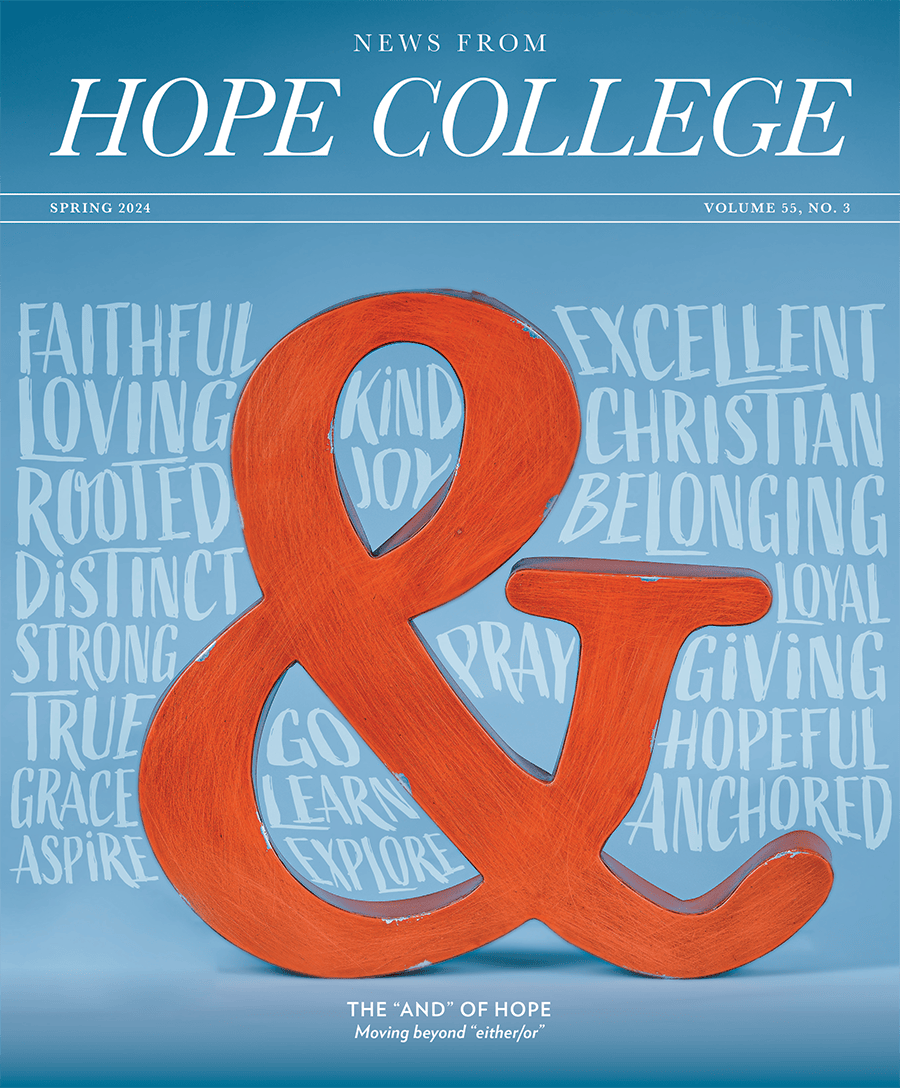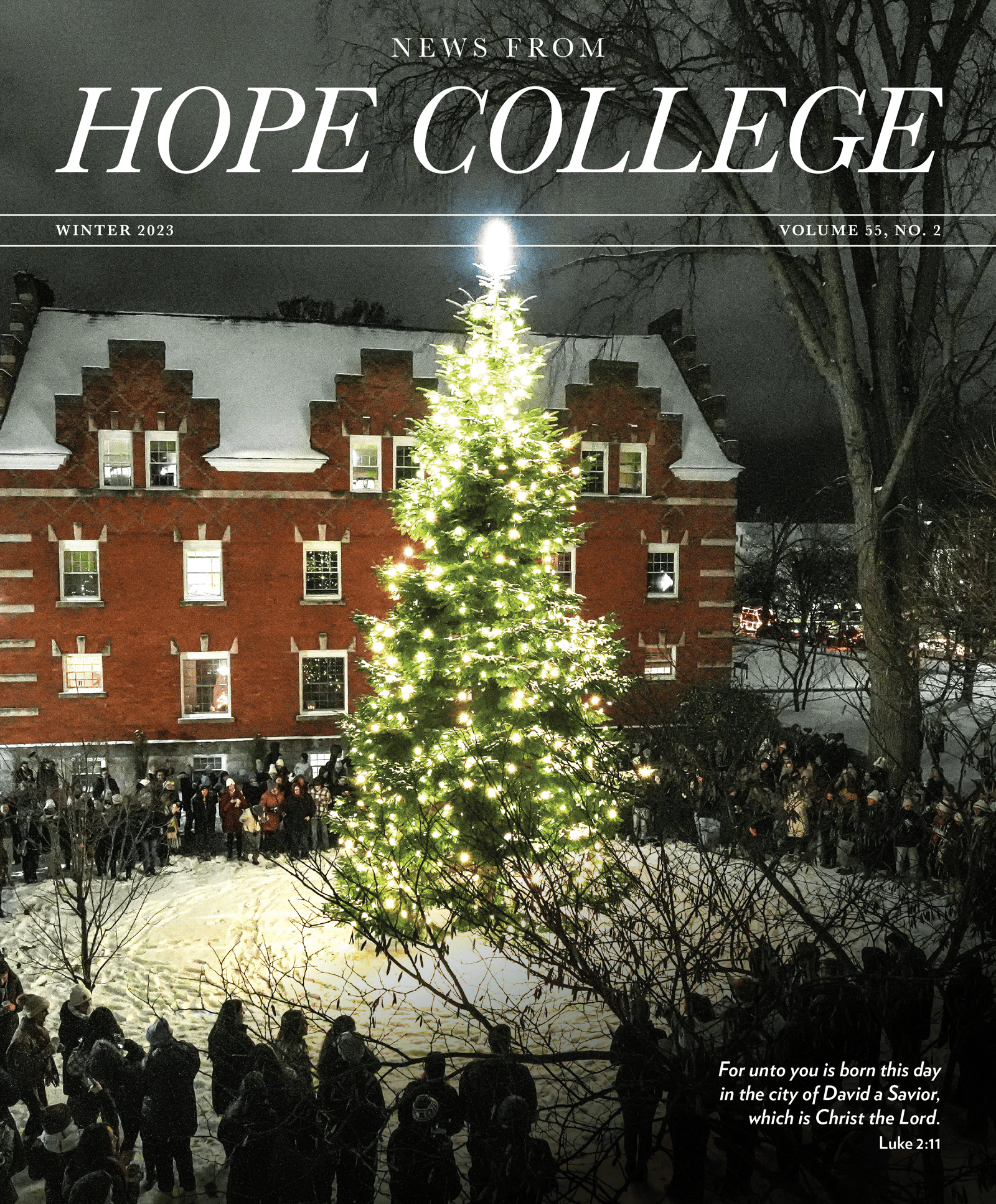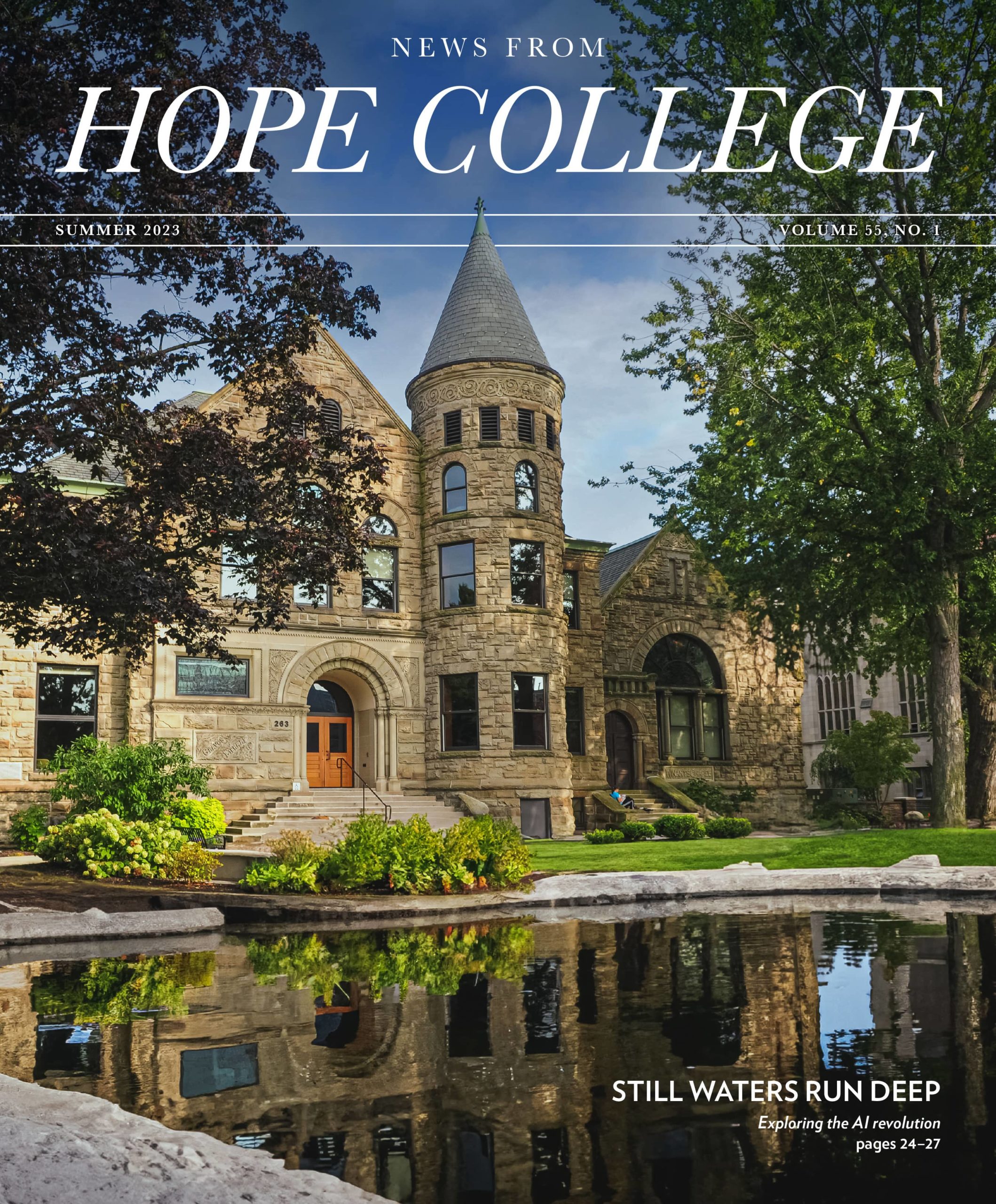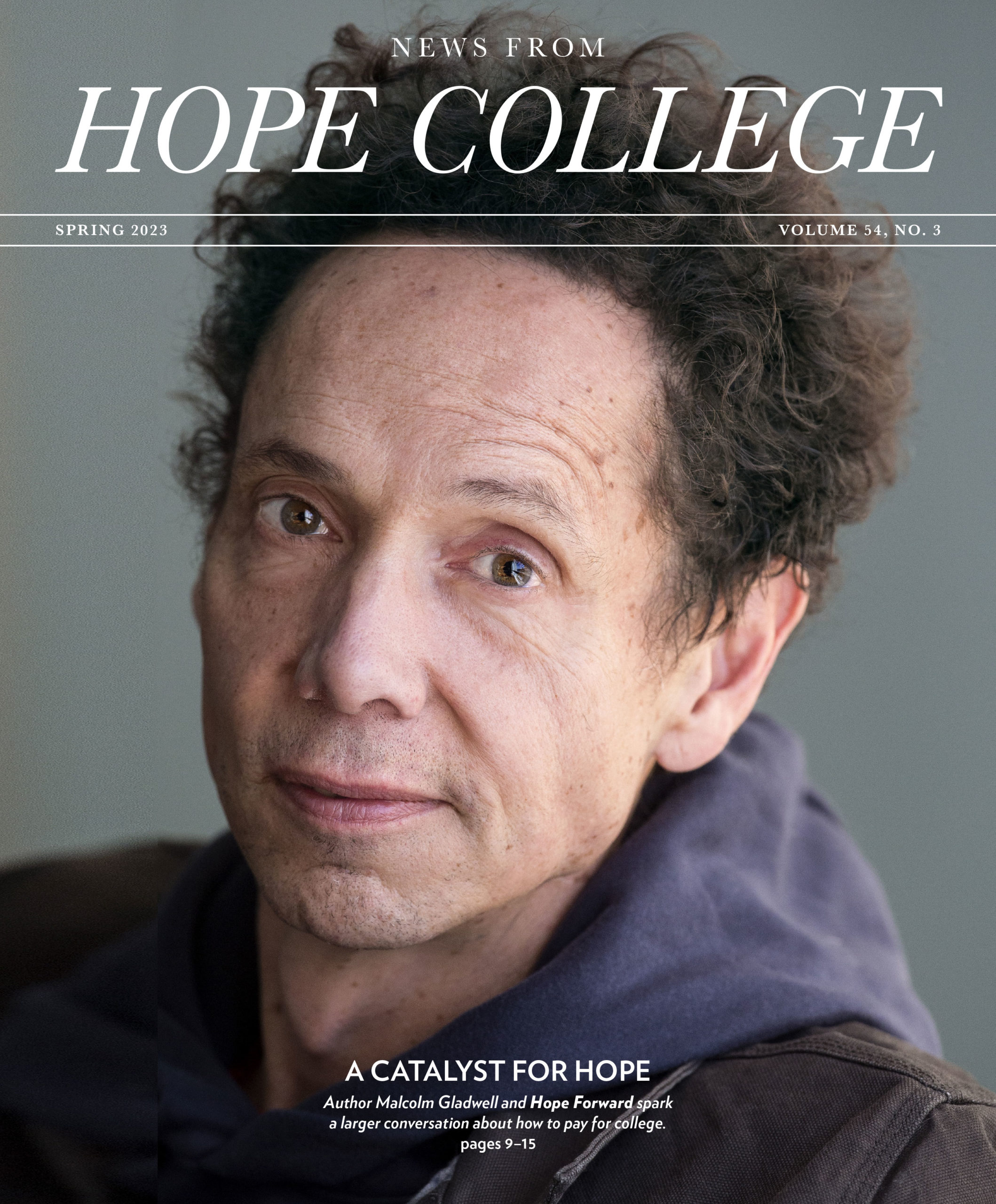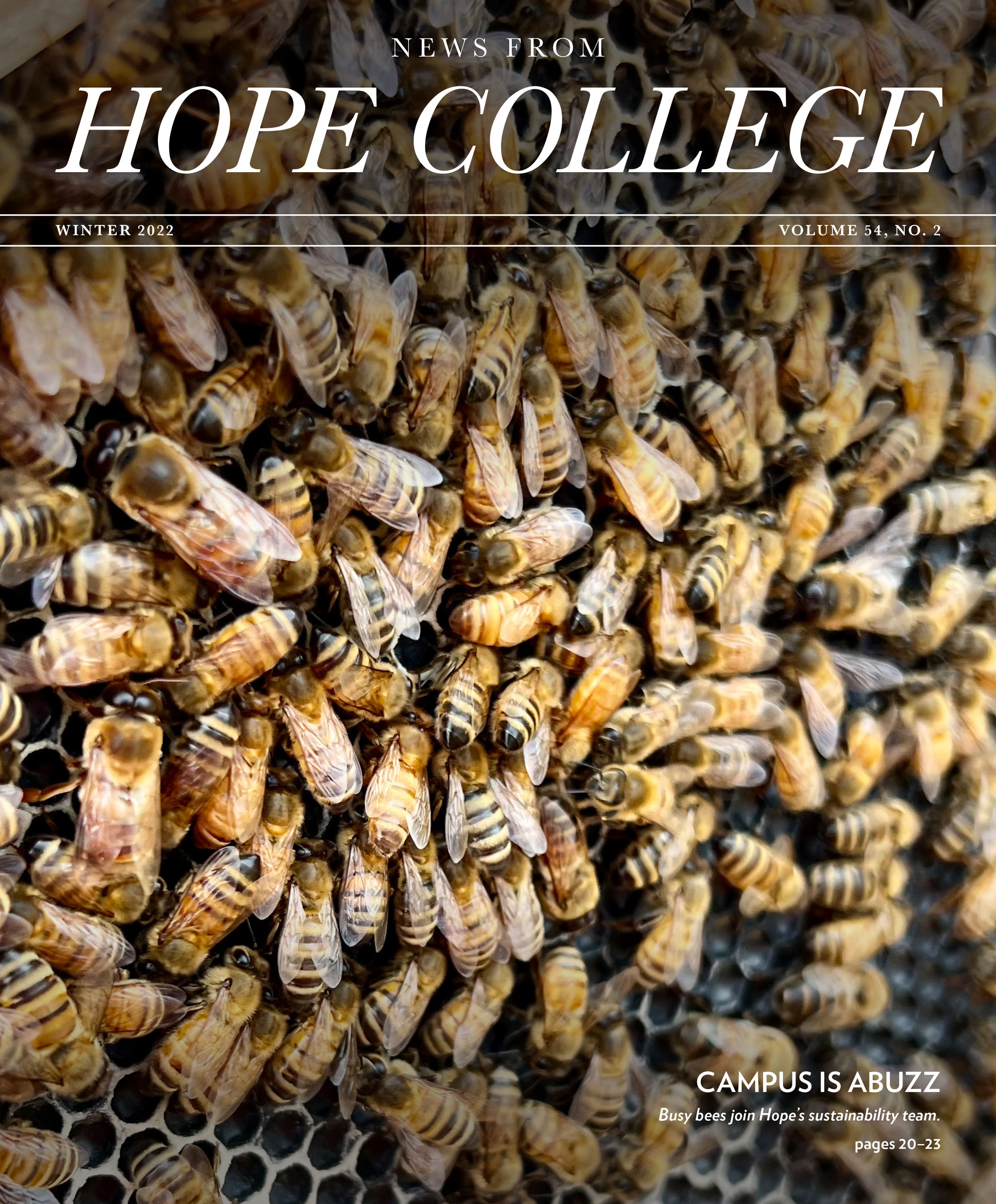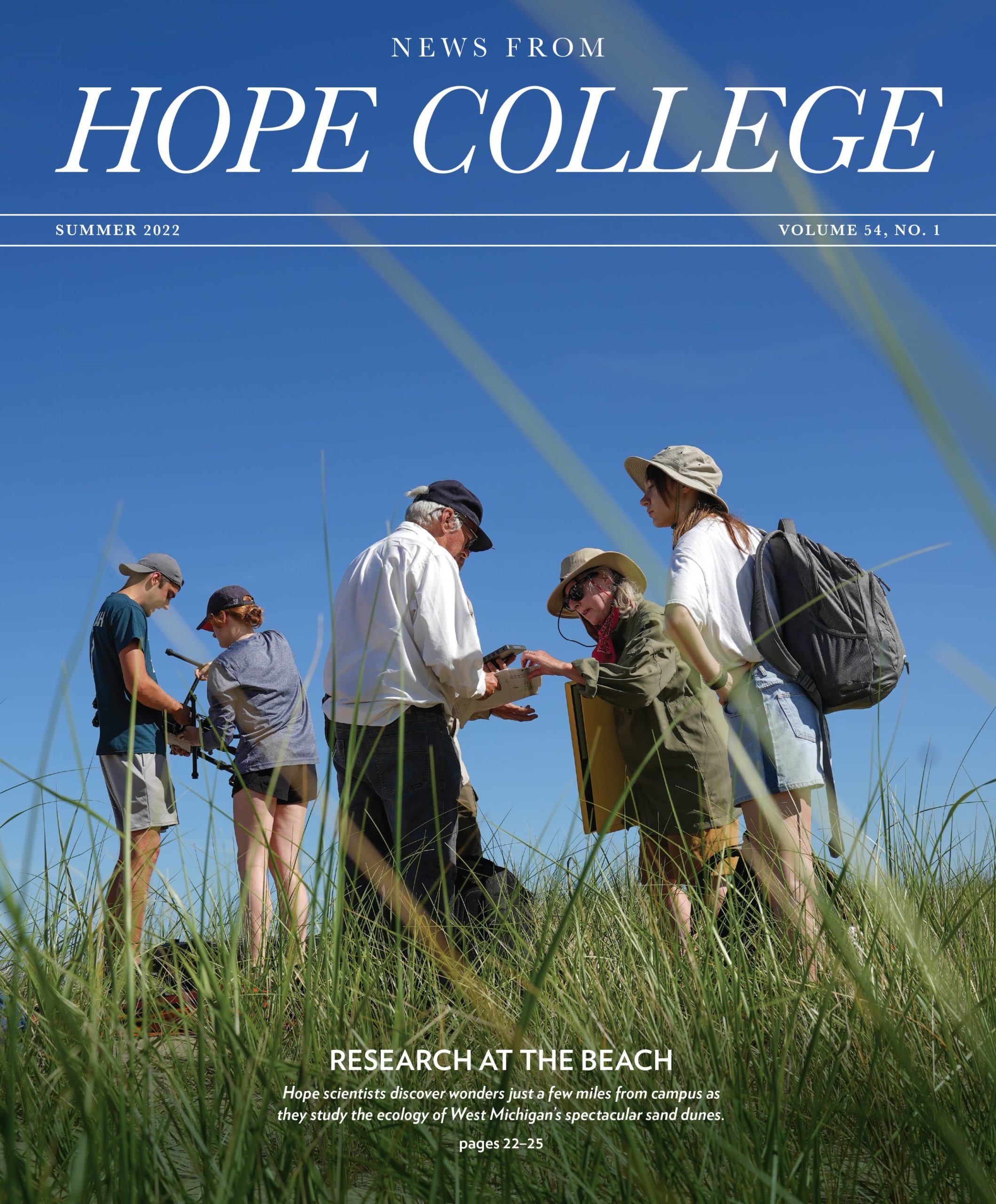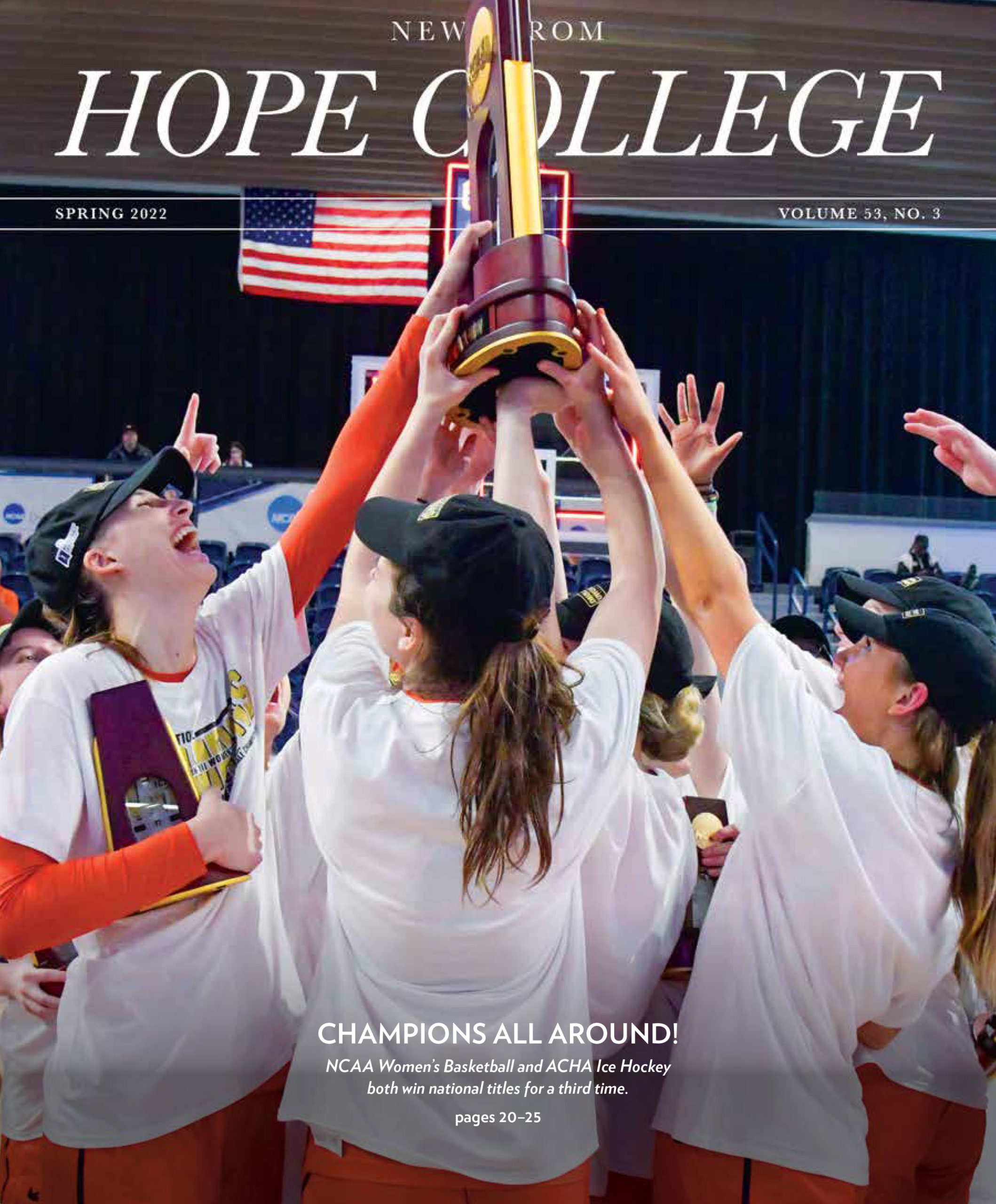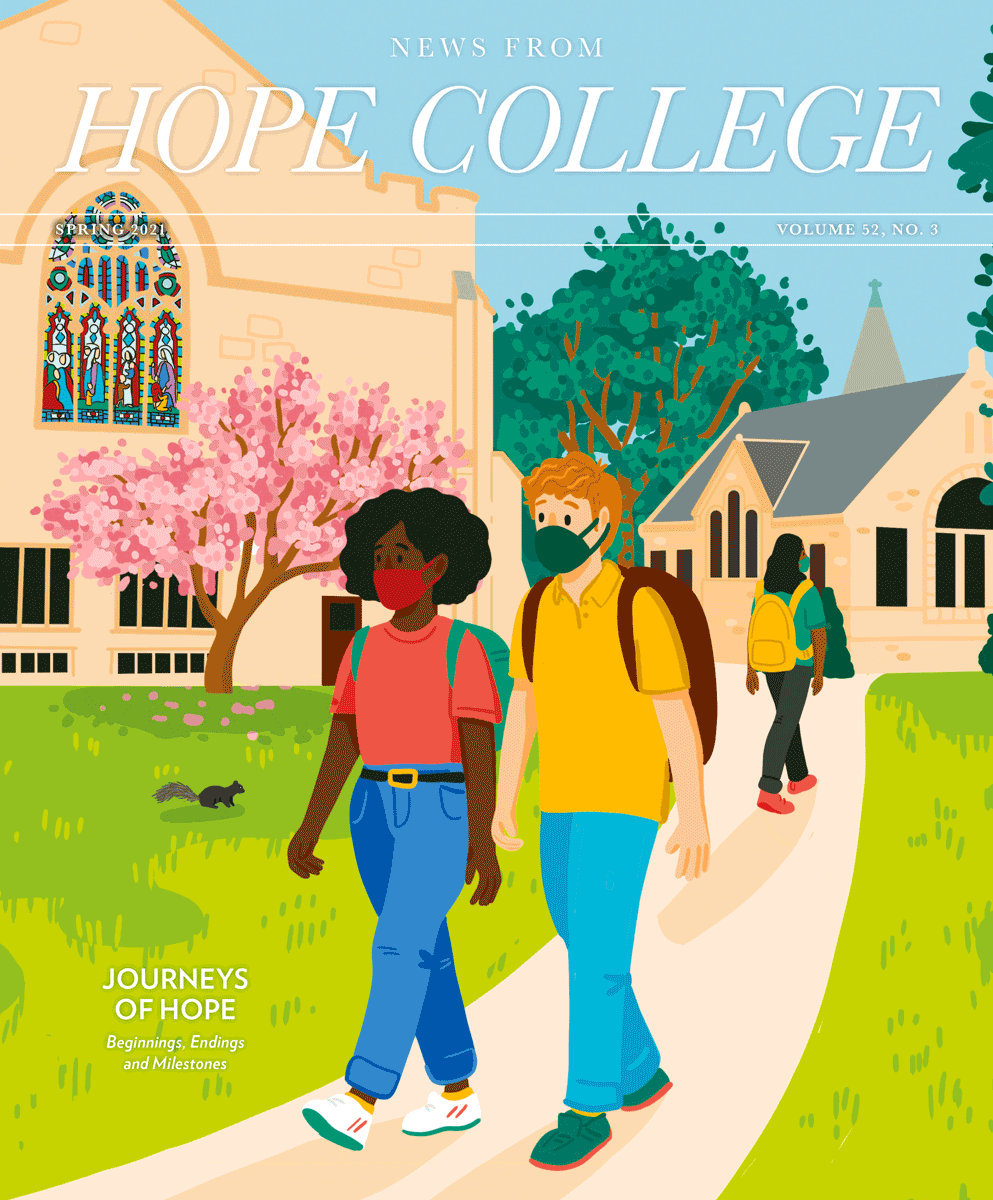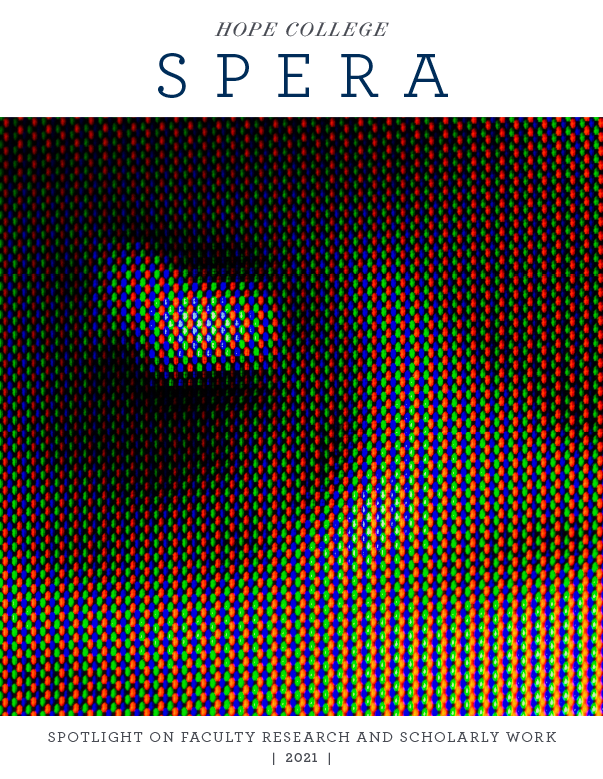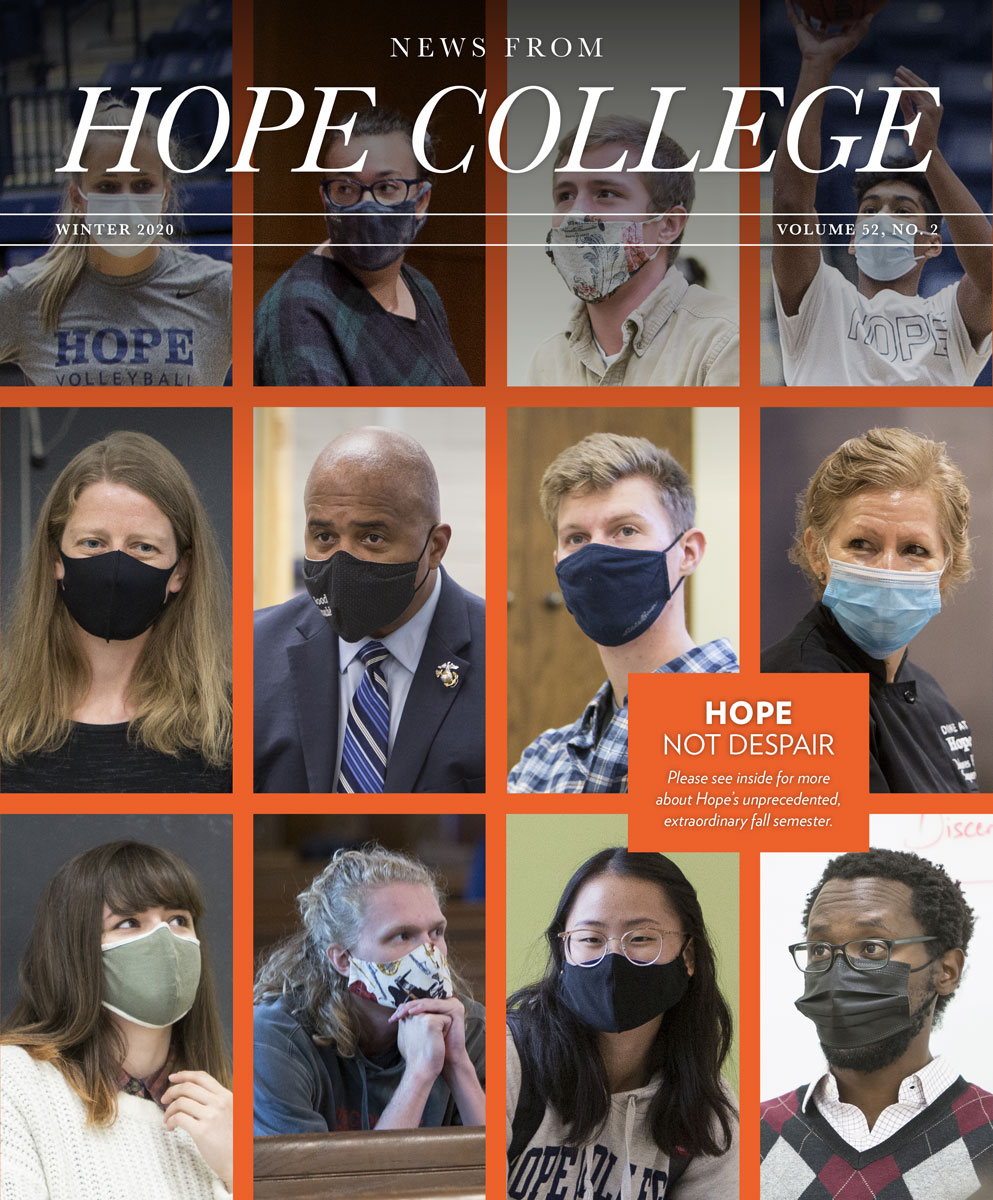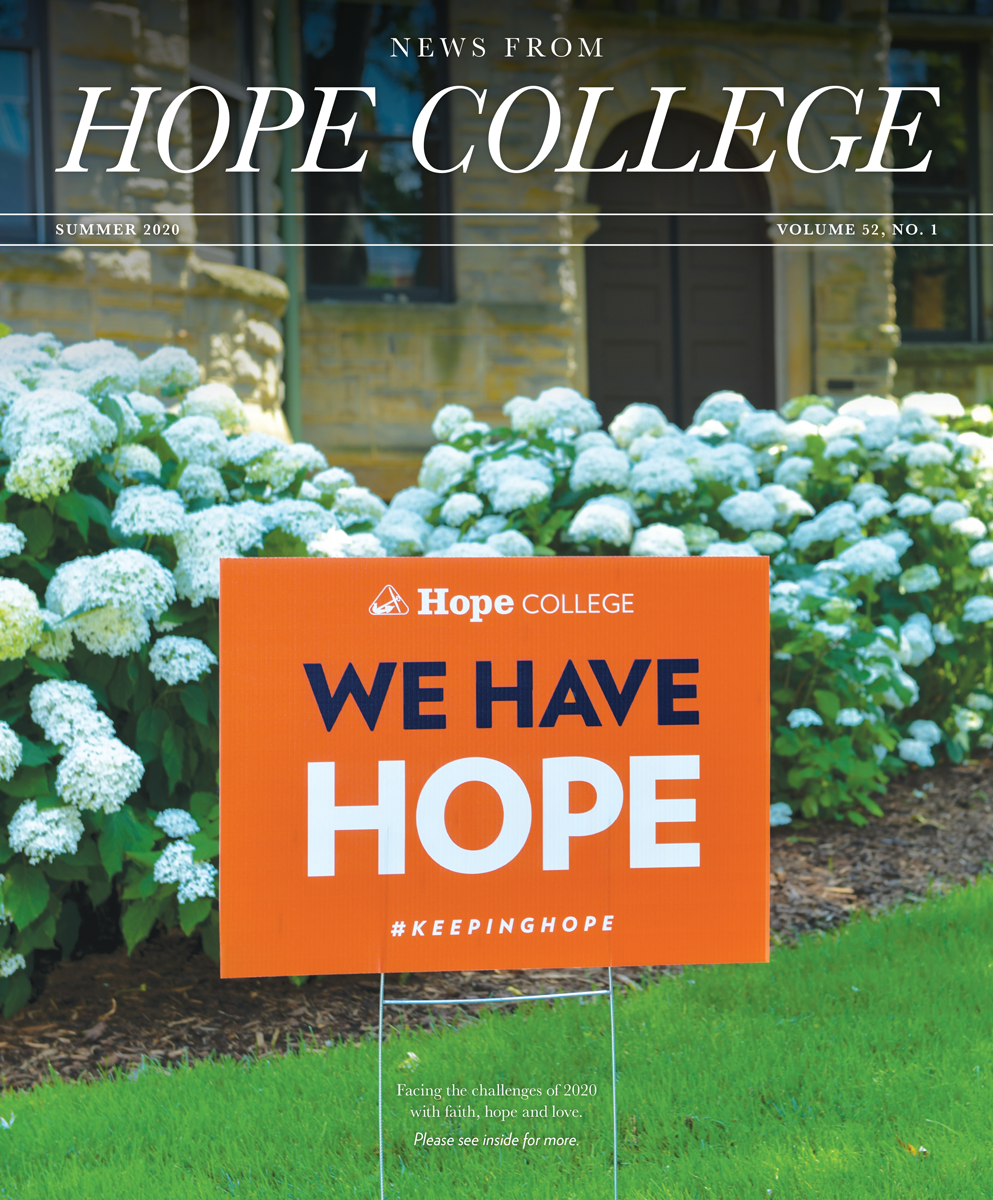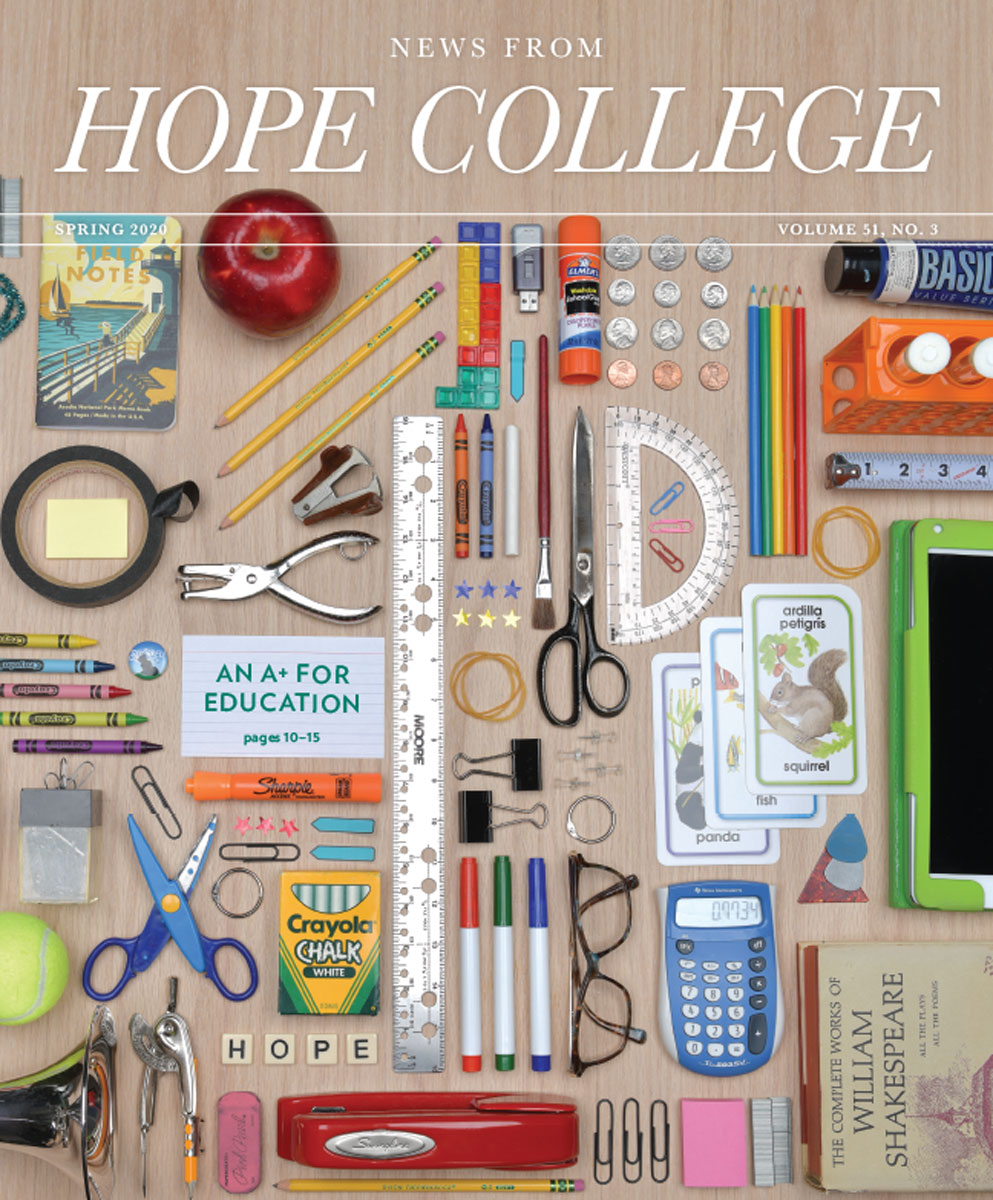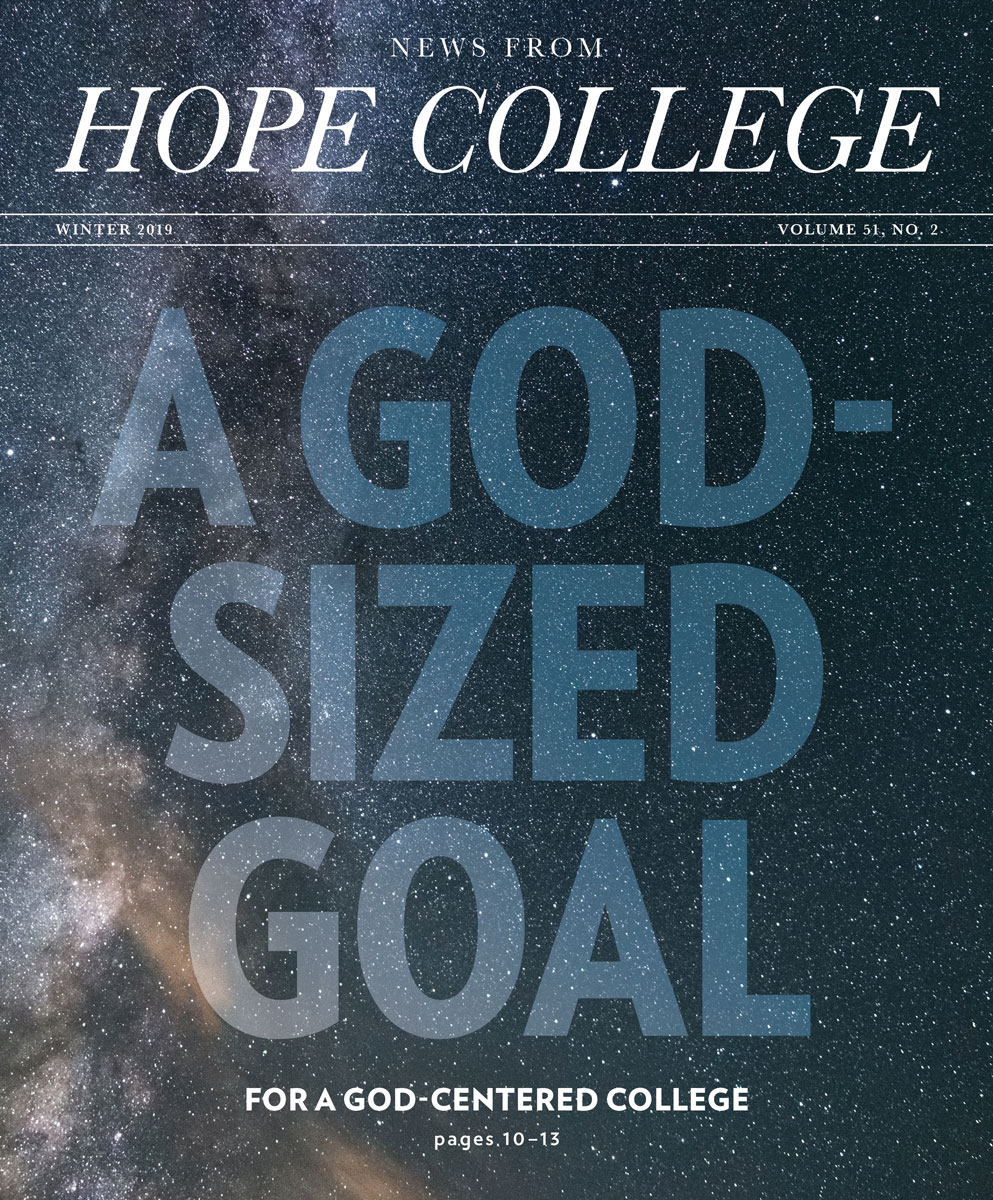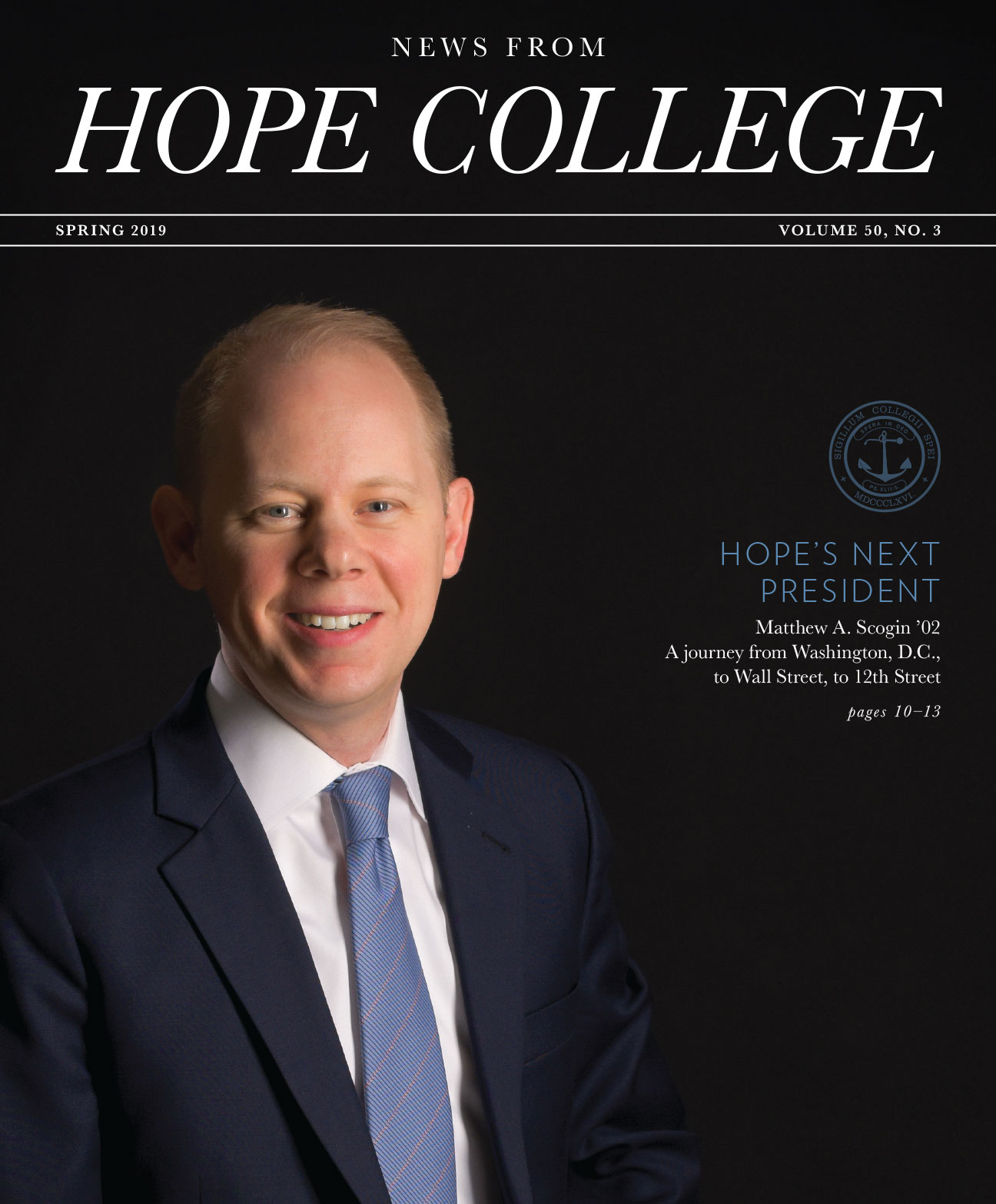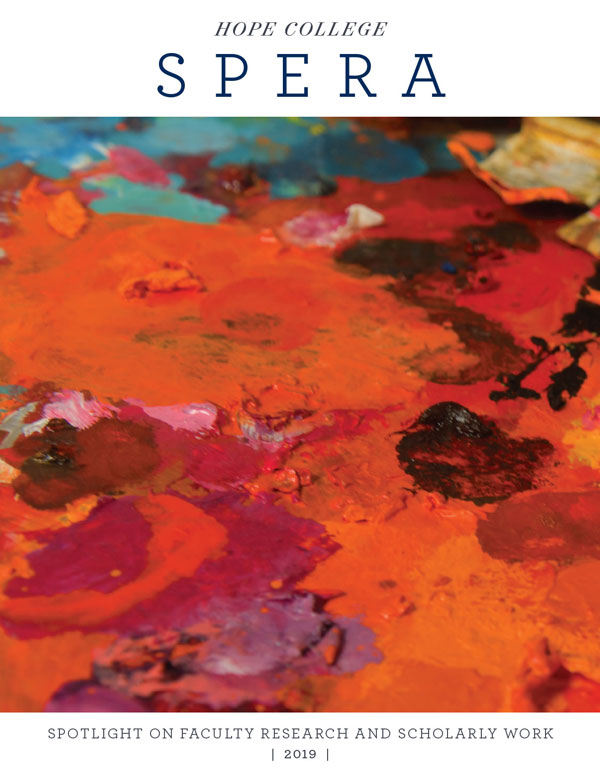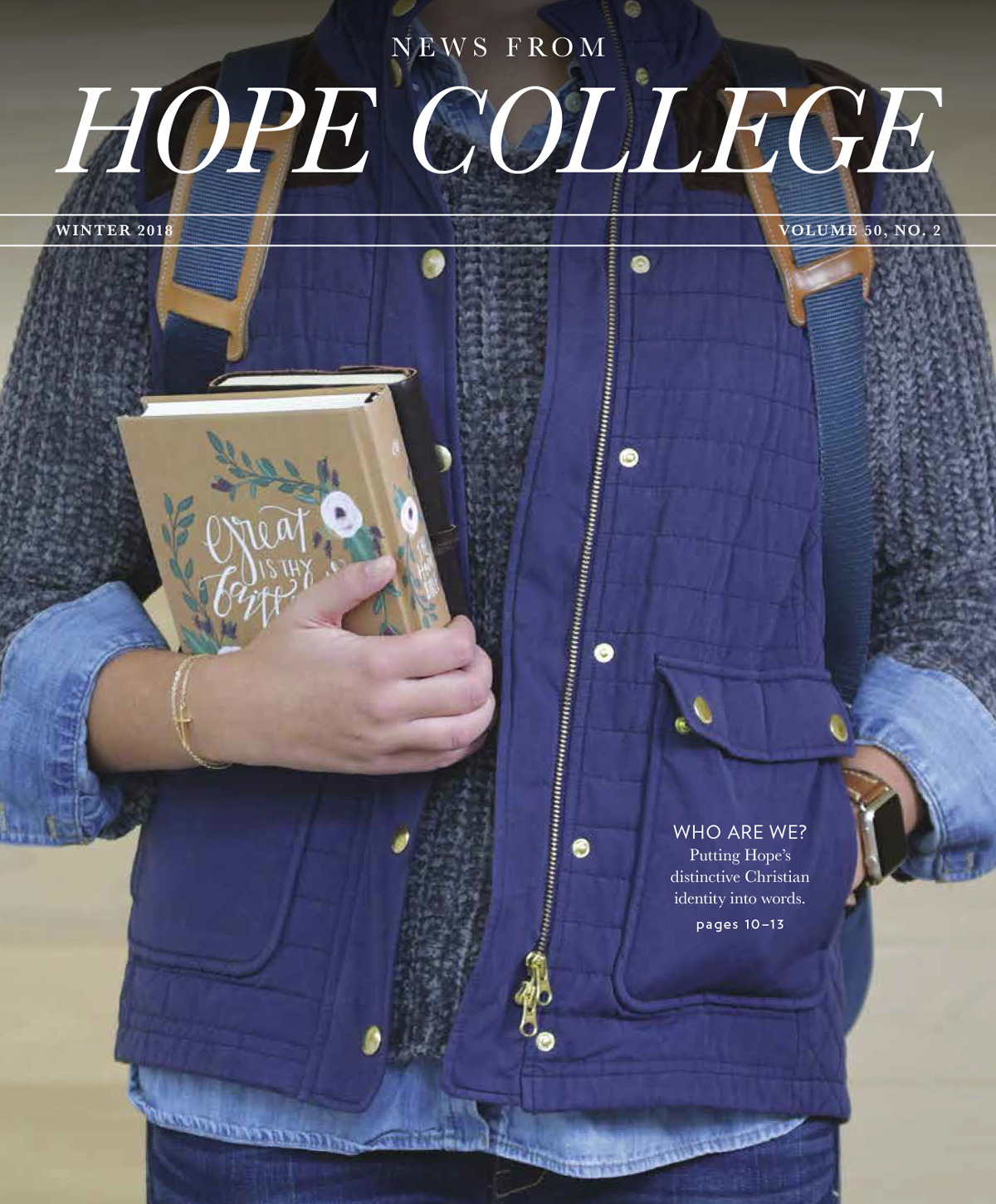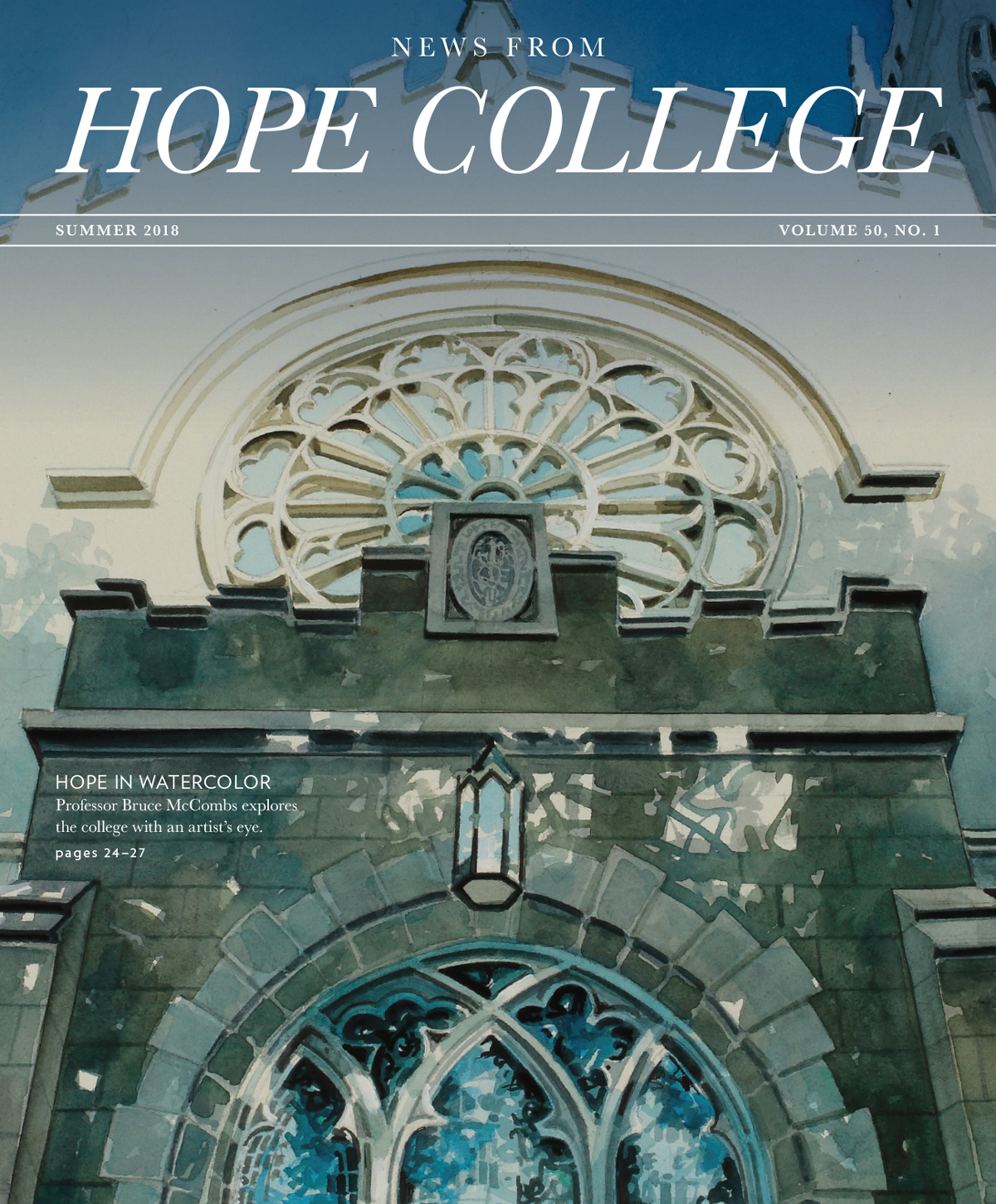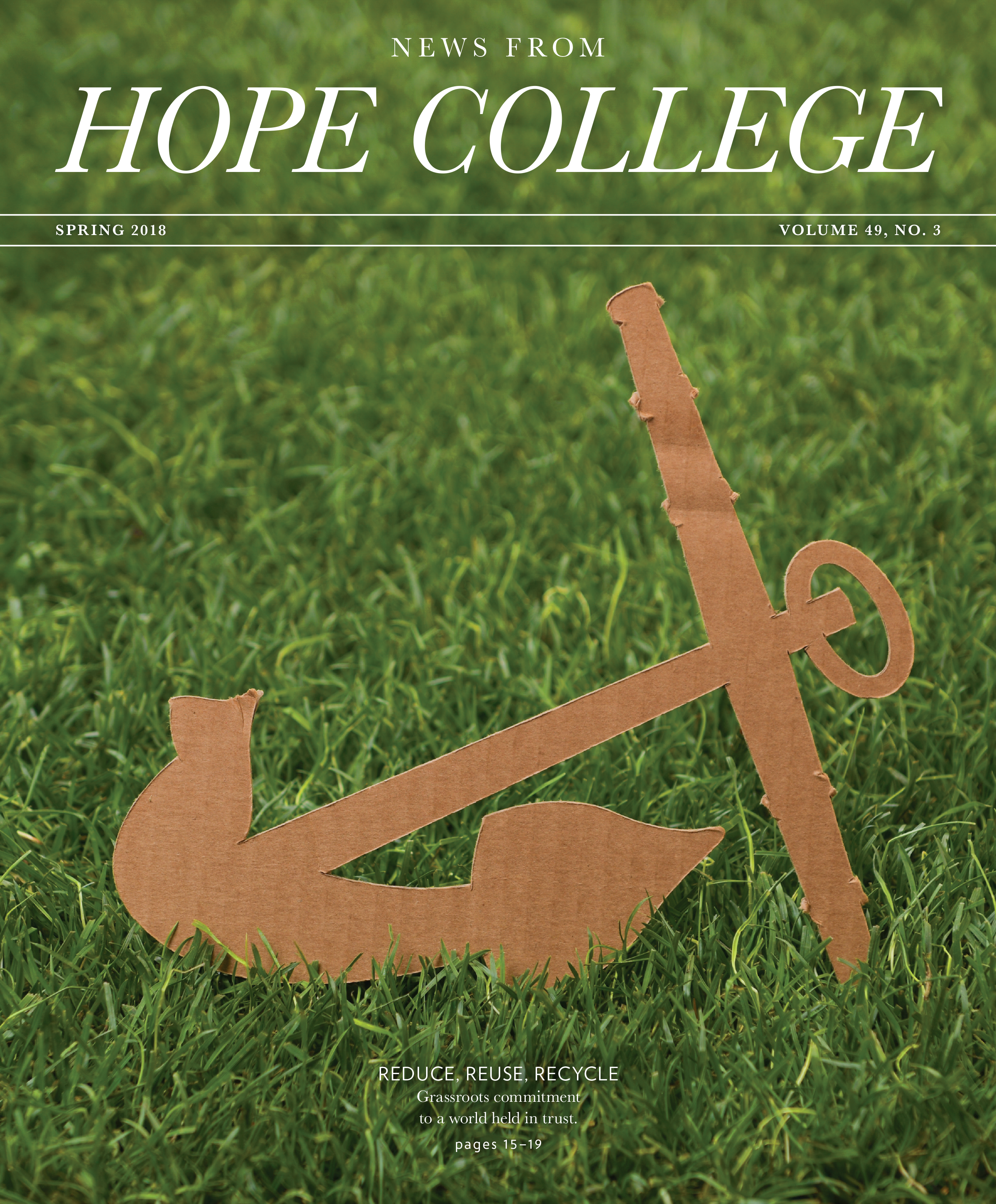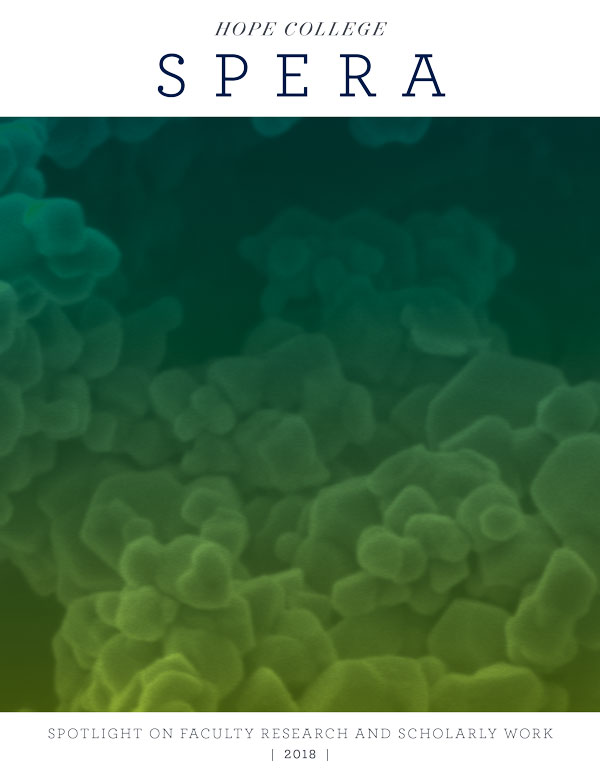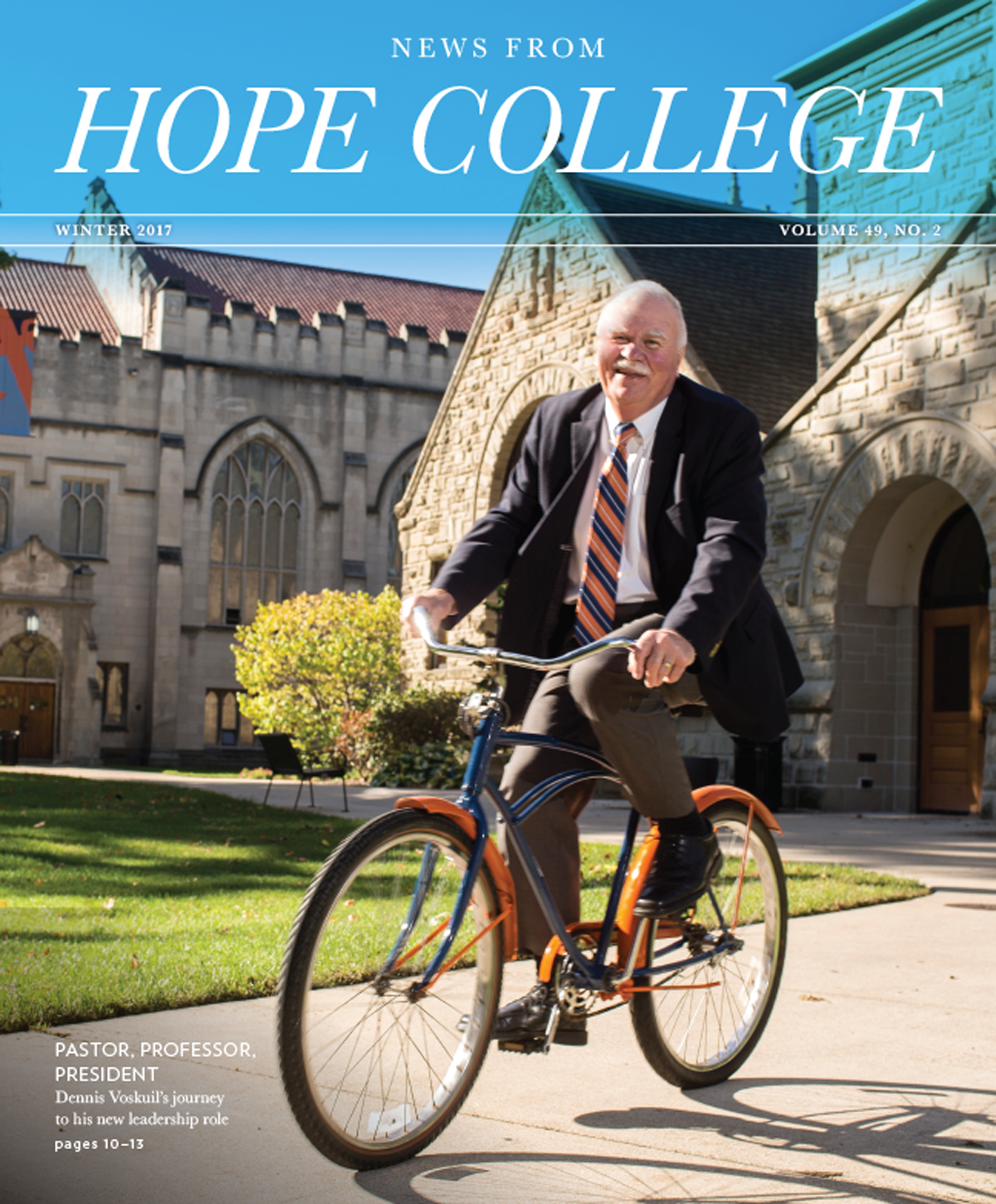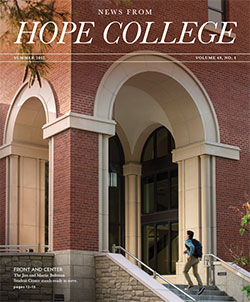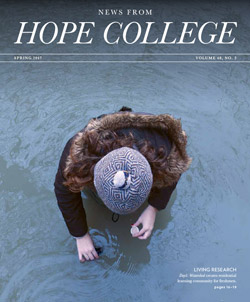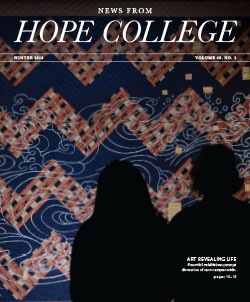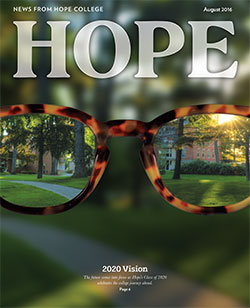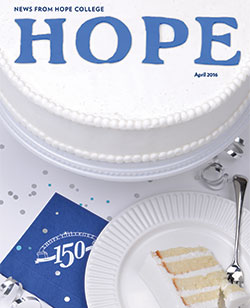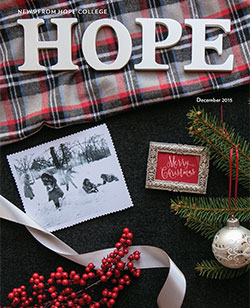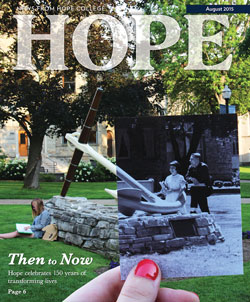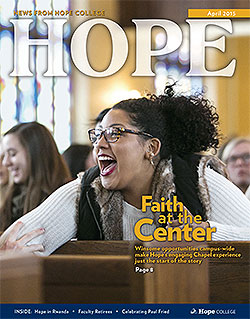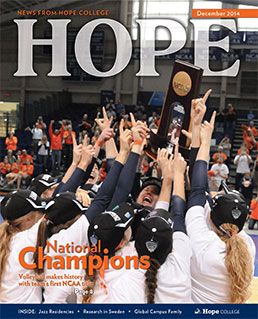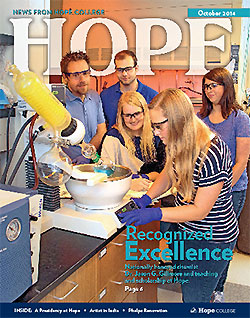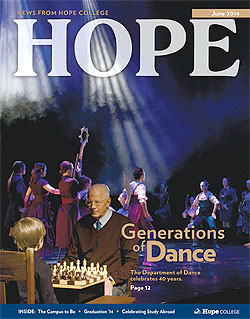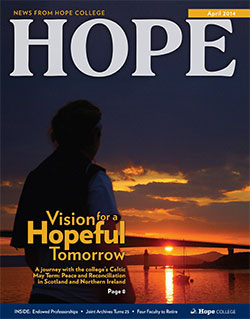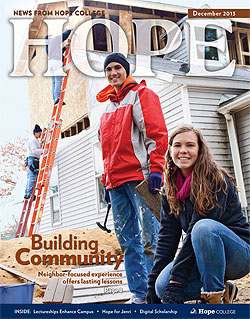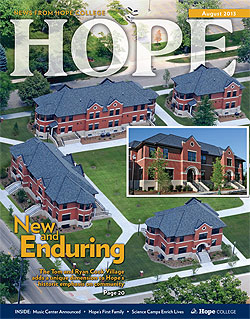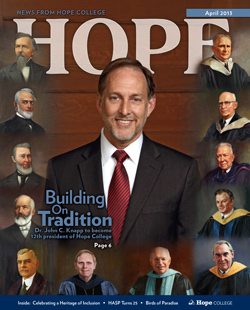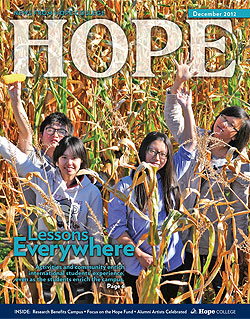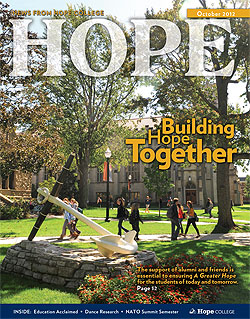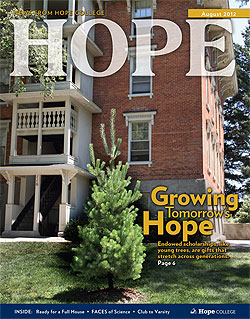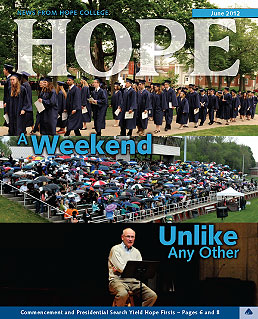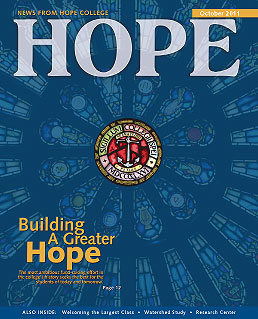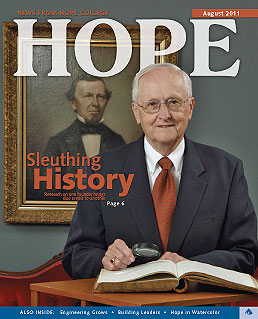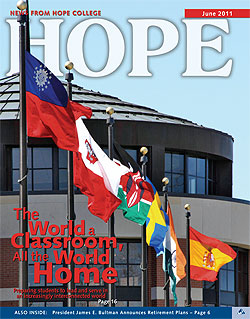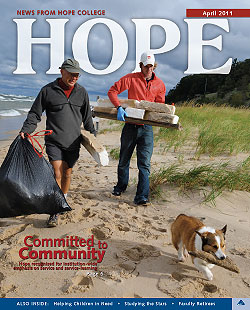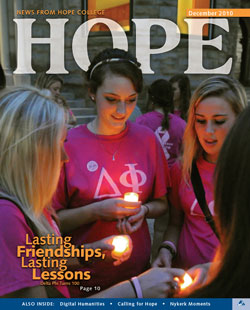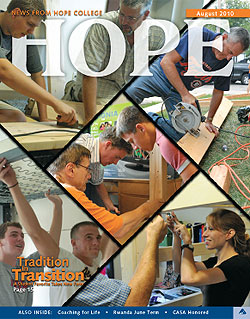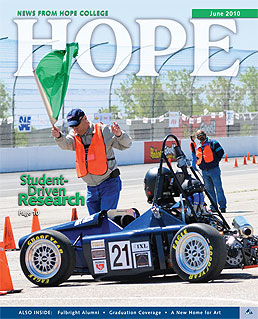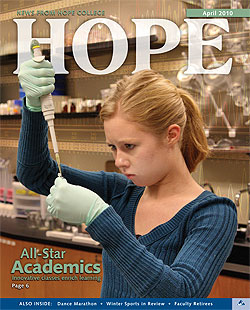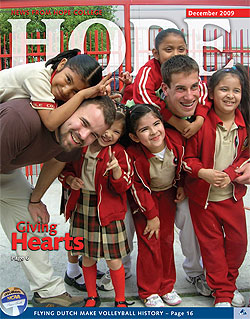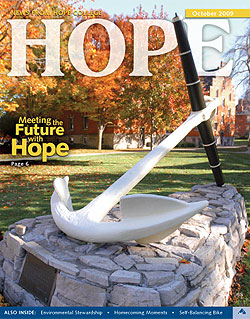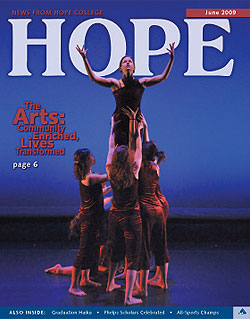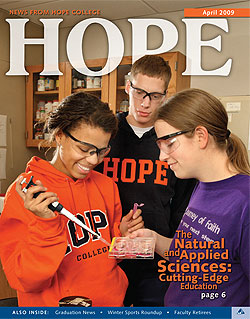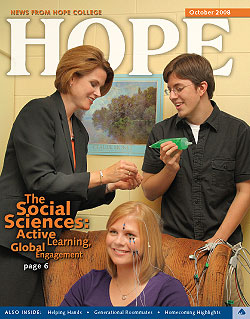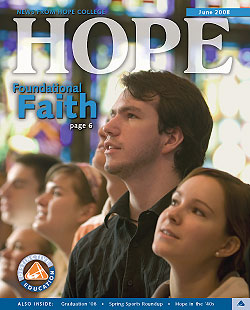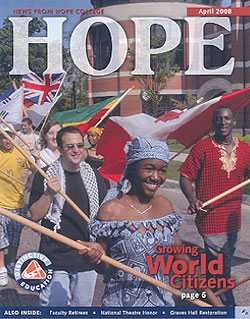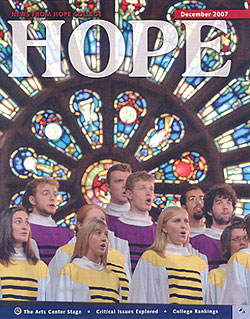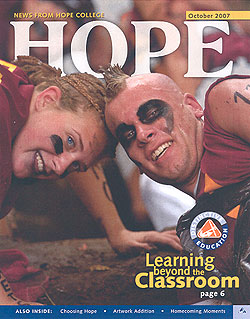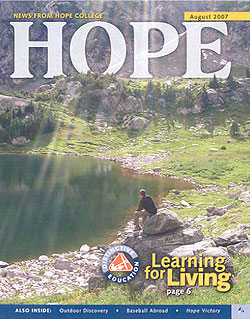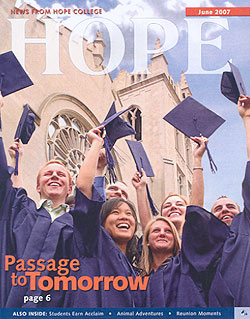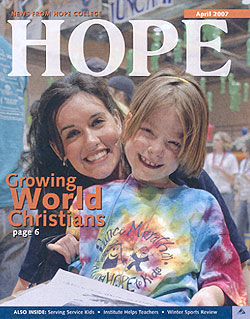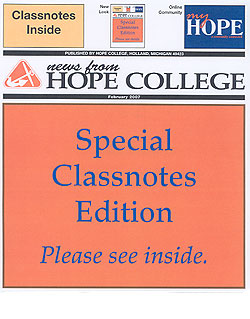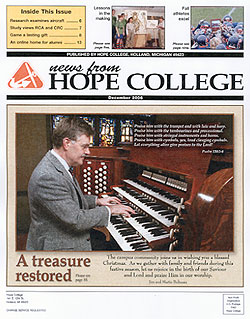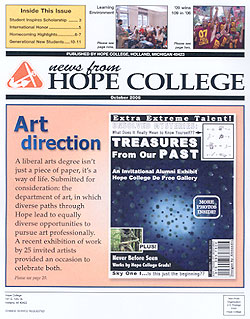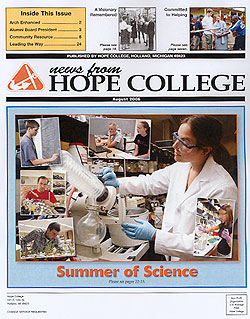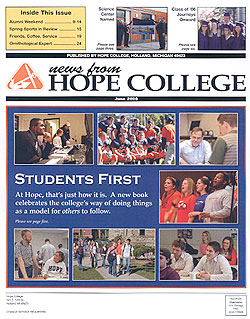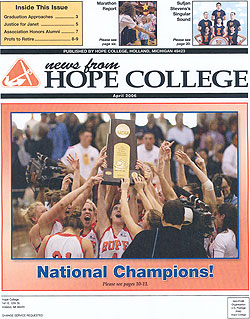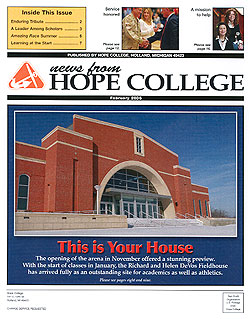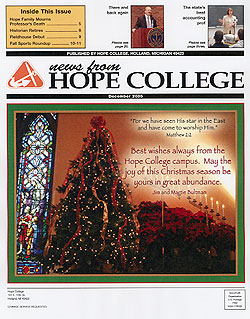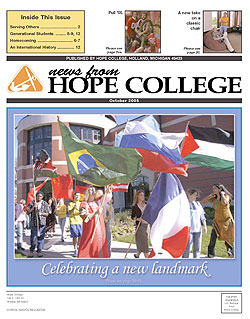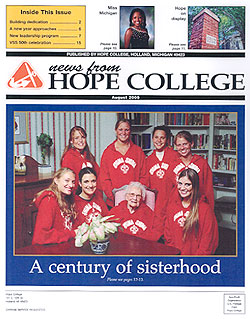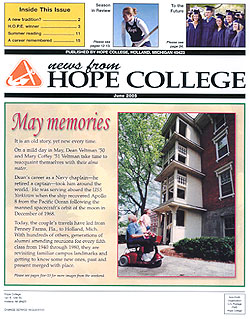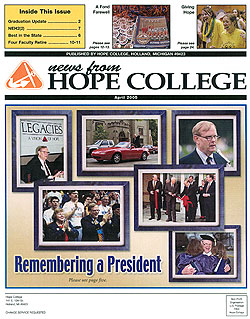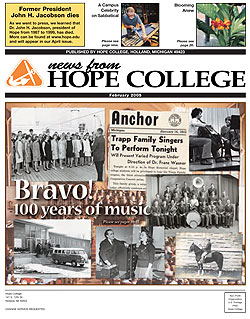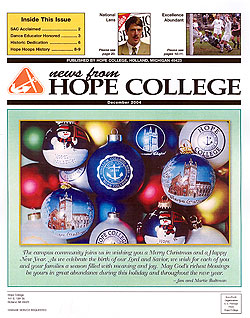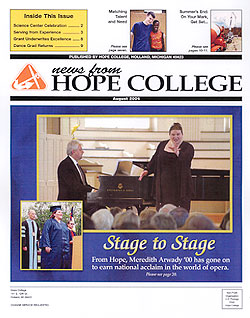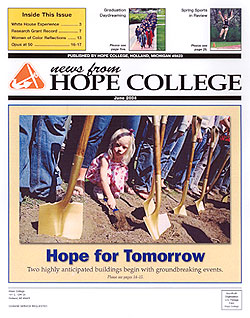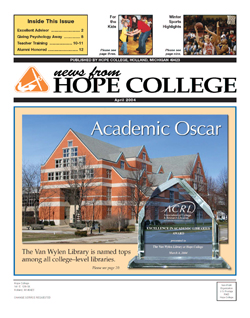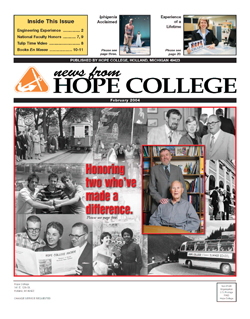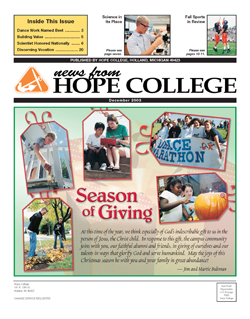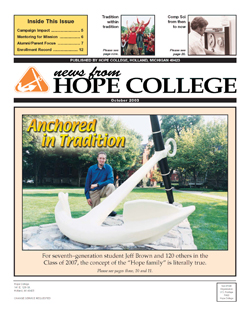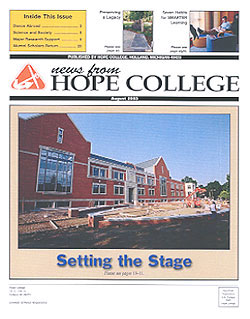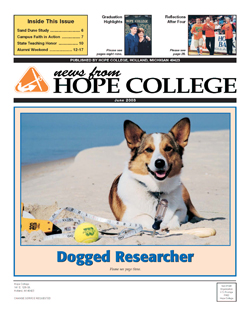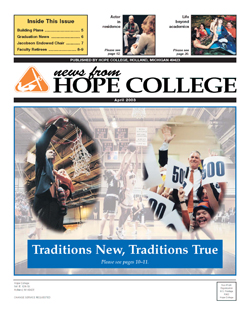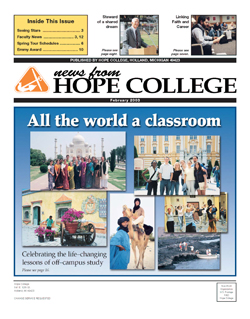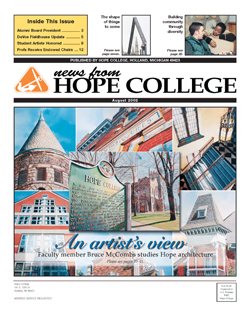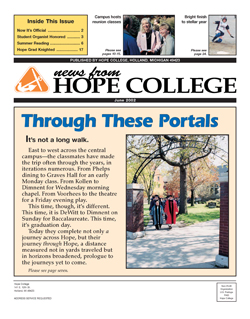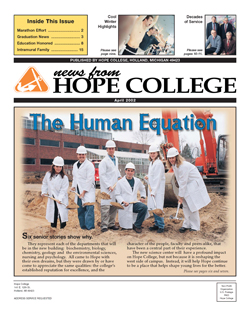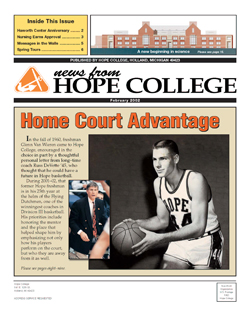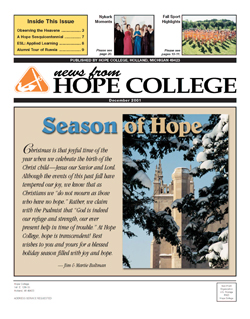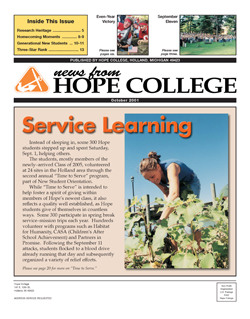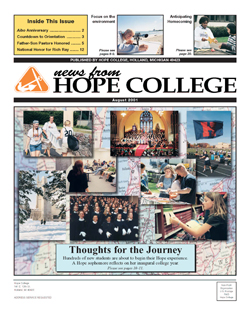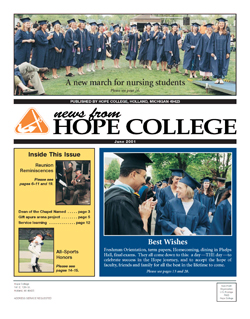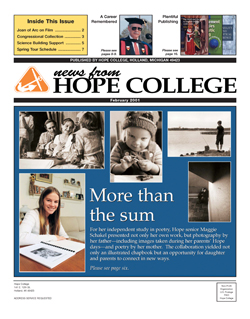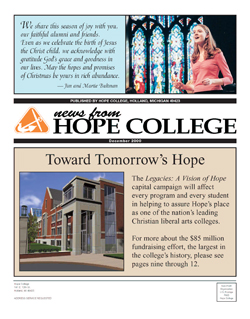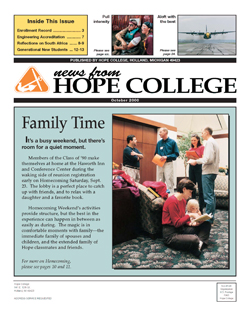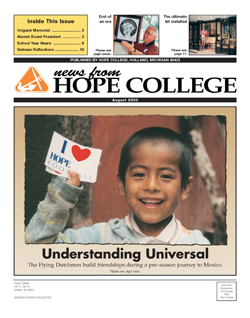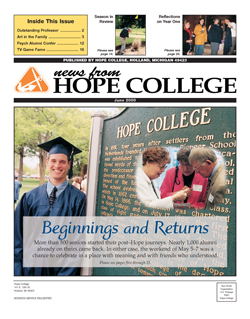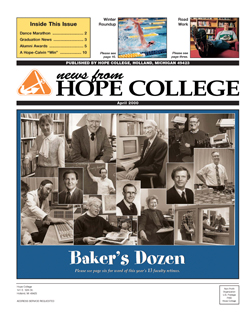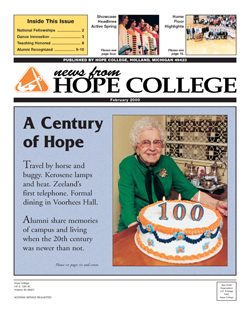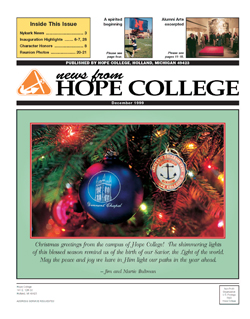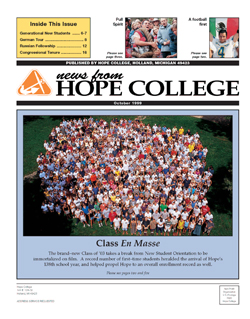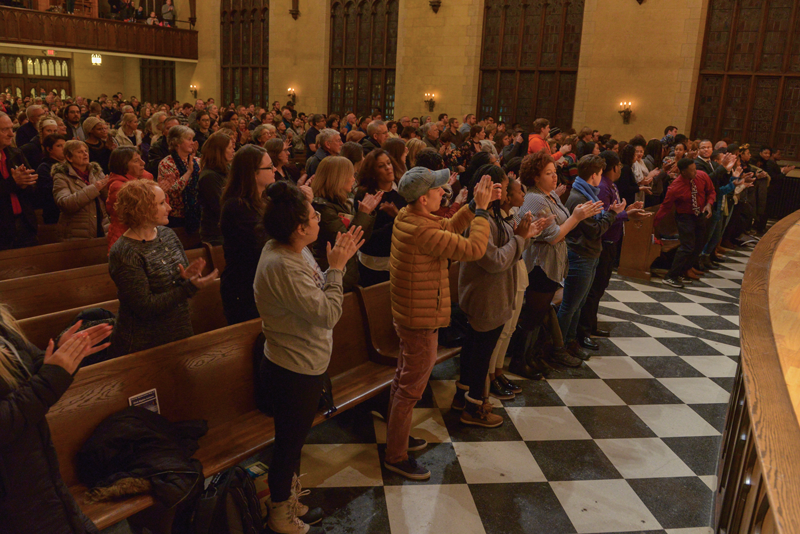Quote, Unquote: Civil Rights Lecture
Quote, unquote is an eclectic sampling of things said at and about Hope College.
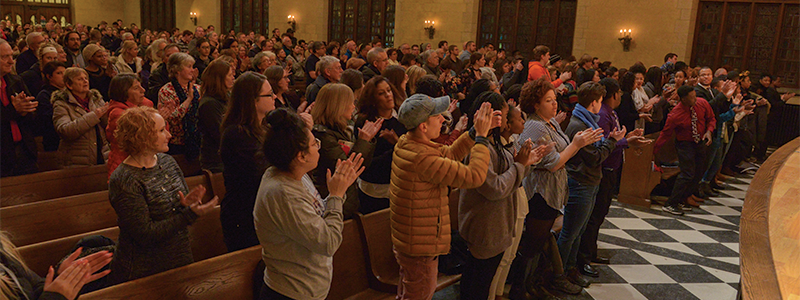
This year’s annual Dr. Martin Luther King Jr. Civil Rights Lecture marked three anniversaries.
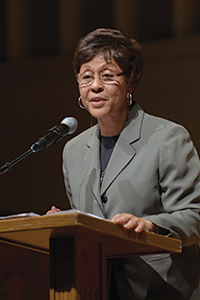
First, held on national Martin Luther King Jr. Day on Monday, Jan. 15, the occasion celebrated the late civil rights leader’s birth and his legacy. Second, it reflected on the 50th anniversary of his assassination on April 4, 1968, at the Lorraine Motel in Memphis, Tennessee, and the work remaining to be done in realizing the vision he expressed for America. Third, it was the 30th year of the event, which across the past three decades has featured insights from a wide variety of speakers regarding the state of the dream and the journey past and present.
A capacity crowd filled Dimnent Memorial Chapel for this year’s lecture. And in an era of deep national division, in a week marked by news of an unprintable slur, the audience heard a call to action and encouragement from someone who had experienced the worst of an earlier time of brokenness: the Rev. Dr. Carolyn McKinstry, who as a teen survived the racially motivated bombing of the Sixteenth Street Baptist Church of Birmingham, Alabama, on Sept. 15, 1963, that killed four of her friends brief moments after she had been with them.
McKinstry told of her life growing up in then-segregated Birmingham, of her involvement in the Birmingham Civil Rights Movement of the 1960s and of meeting King. She spoke openly of the pain she experienced — of seeing her terminally ill, beloved grandmother relegated to the basement of a segregated hospital; of being blasted by fire hoses during a march for equality; of the death of her friends; and of the terror when another bomb exploded near her home — and of the despair that followed.
“The next 20 years of my life, I would spend struggling with depression,” she said. “I had no idea why we were hated so much. Why didn’t God just allow me to die in the church bombing with my friends?”
From that low point, though, she has come to see hope in reconciliation, harkening back to the message of King in seeking to mobilize those who likewise hunger for better. It’s perspective that she has since shared in eight countries and more than 35 states.
“There were many lessons, though very painful, that we learned from Dr. King, but 50 years later his messages and his lessons are just as relevant and timely today as when they were written,” McKinstry said. “The titles that he chose tell us about his heart: Where Do We Go from Here?, ‘I Have a Dream,’ ‘Remaining Awake through a Great Revolution’ and ‘Letter from Birmingham Jail.’”
“Love and nonviolence are what humanity needs most of all,” she said. “This was what Dr. King first said to us. When we marched with Dr. King, we carried signs, and those signs said ‘Can a man love God and hate his brother?’ Love is what love does, and love does his neighbor no harm. Dr. King said that in the matter of nonviolence we will either learn to be nonviolent or we will be nonexistent.”
“We must work toward the realization of the beloved community where all are valued,” McKinstry said. “And you are never too young, never too old, to get involved.”
